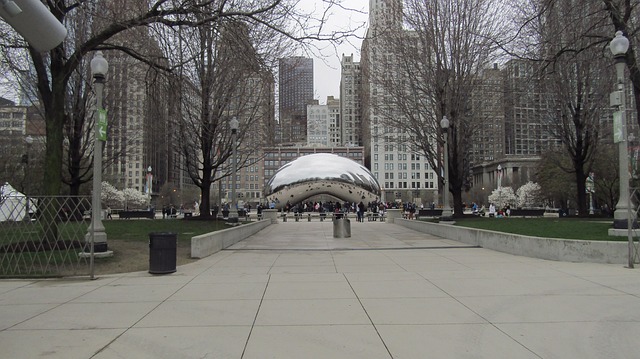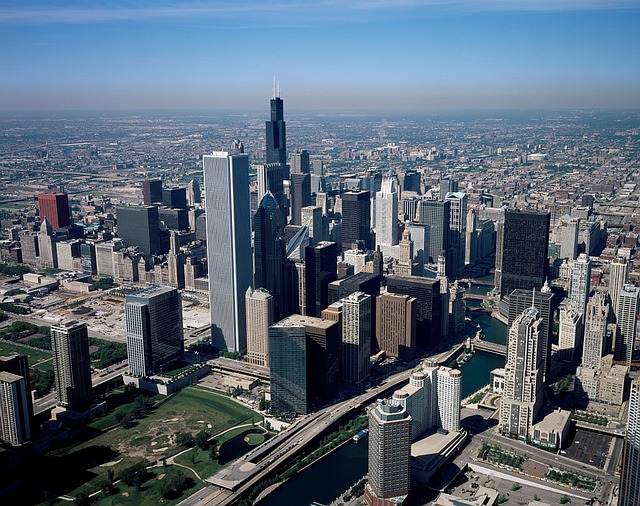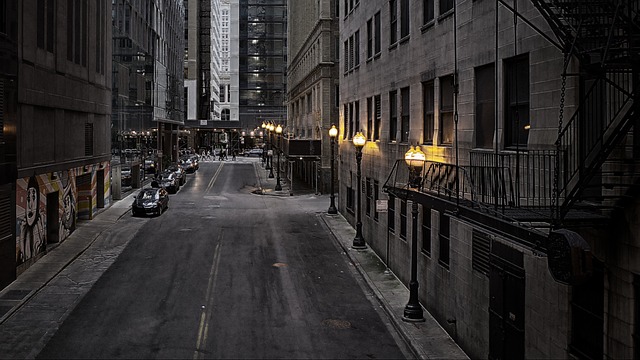Distressed property sales, including fire-damaged homes in Chicago, Illinois, present unique opportunities for buyers and investors due to financial challenges faced by homeowners. While these properties require careful consideration due to potential repair costs and structural integrity issues, a robust legal framework ensures transparency. Effective marketing strategies leveraging digital tools are crucial for successful sales, attracting investors and buyers seeking affordable options. Case studies demonstrate that strategic rehabilitation can lead to premium prices, as shown by Investor X's successful sale of a fire-damaged North Side house in Chicago.
“Discover the fascinating world of distressed property sales in Illinois, with a particular focus on Chicago. This comprehensive guide explores the unique challenges and opportunities presented by fire-damaged homes within the state’s real estate market. From understanding the dynamics of these sales to navigating legalities and effective marketing strategies, we delve into successful case studies. Learn how buyers and sellers can navigate this niche segment, especially when it comes to selling fire-damaged properties in Chicago, offering insights that could prove invaluable for industry professionals.”
- Understanding Distressed Property Sales: A Glimpse into the Market in Illinois
- The Impact of Fire Damage on Chicago Real Estate
- Legal and Regulatory Framework for Selling Distressed Properties
- Strategies for Effective Marketing and Sales in the Illinois Market
- Case Studies: Successful Sales of Fire-Damaged Homes in Chicago
Understanding Distressed Property Sales: A Glimpse into the Market in Illinois
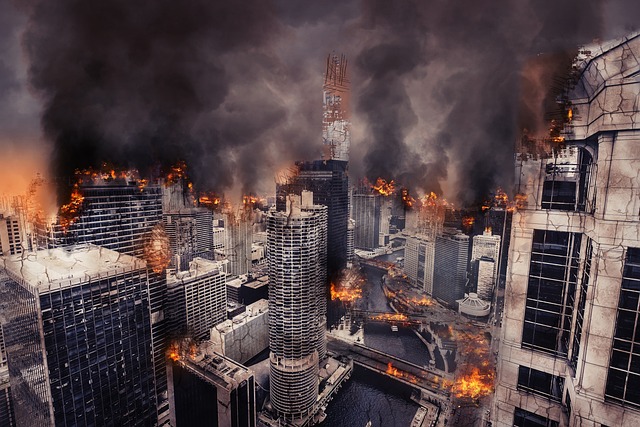
Distressed property sales, a significant aspect of Illinois’s real estate market, refer to homes that have gone through financial hardships, often resulting in foreclosure or owners unable to meet mortgage obligations. These properties, which may include sell fire damage house Chicago, offer unique opportunities for buyers seeking affordable entry into the housing market. Understanding this niche segment is crucial as it provides insight into the economic health of communities across the state.
In Illinois, distressed homes can be found in various forms, from single-family residences to multi-unit buildings. The Chicago area, known for its bustling real estate scene, also experiences a substantial volume of these transactions. Buyers interested in selling fire damage houses Chicago or purchasing other distressed properties can expect competitive markets with the potential for significant savings. However, navigating these sales requires careful consideration due to the unique circumstances surrounding such properties.
The Impact of Fire Damage on Chicago Real Estate

Fire damage can significantly impact the real estate market in Chicago, affecting both homeowners and investors. When a property suffers extensive fire damage, it often needs substantial repairs, renovations, or even total reconstruction. This not only reduces the property’s value but also creates challenges for potential buyers who may be hesitant to purchase a distressed home. In Chicago, where the real estate market is competitive, selling a fire-damaged house can be particularly challenging due to concerns about structural integrity and hidden costs of repair.
However, with proper disclosures and transparent communication, some buyers are willing to take on these challenges. The process involves assessing the extent of damage, obtaining accurate cost estimates for repairs, and marketing the property effectively to attract interested buyers. For investors looking to buy and renovate, fire-damaged properties can present an opportunity to acquire a home at a discounted price, allowing them to create a new and valuable residence in Chicago’s dynamic real estate landscape.
Legal and Regulatory Framework for Selling Distressed Properties
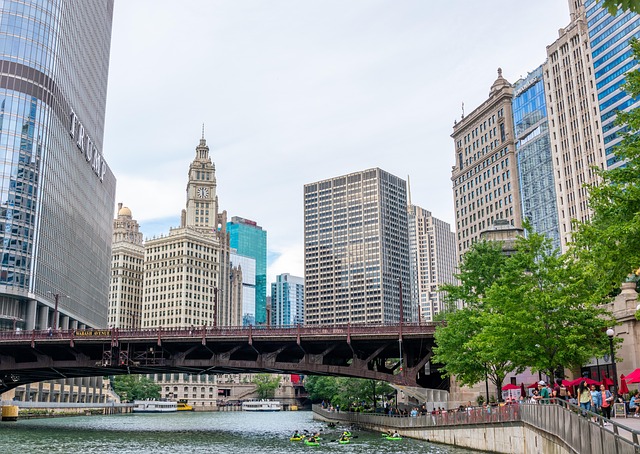
In Illinois, the sale of distressed properties, including fire-damaged homes in Chicago, is governed by a comprehensive legal and regulatory framework designed to protect buyers, sellers, and the broader community. The state has established clear guidelines for handling such sales to ensure transparency and fairness. Real estate attorneys play a crucial role in navigating these regulations, which include specific procedures for disclosure and repair requirements. For instance, when selling a fire-damaged property, the seller must disclose any known issues resulting from the fire, providing potential buyers with accurate information to make informed decisions.
Additionally, Illinois has implemented certain protections for distressed homeowners seeking to sell their properties. These measures aim to prevent predatory lending practices and ensure that owners receive fair market value. The state’s regulatory body oversees these transactions, monitoring the process to maintain integrity. For Chicago residents looking to sell a fire-damaged house, understanding this framework is essential to ensuring a legal and successful sale, attracting discerning buyers who appreciate transparency in real estate transactions.
Strategies for Effective Marketing and Sales in the Illinois Market

In the competitive Illinois real estate market, successfully marketing and selling a distressed property, such as a fire-damaged house in Chicago, requires a strategic approach. One key strategy is to highlight the property’s potential for renovation and rehabilitation. Buyers looking for affordable options often appreciate the chance to transform a space into their dream home. Emphasizing this aspect can attract a diverse range of buyers, from first-time homeowners to experienced investors.
Additionally, leveraging digital marketing tools and platforms is essential. With many Chicago buyers conducting initial searches online, a robust online presence is crucial. High-quality photography showcasing the property’s features, both current and potential, along with detailed descriptions emphasizing renovation possibilities, can capture attention. Utilizing social media platforms and targeted advertising ensures that the right audience sees the listing, increasing the chances of a successful sale for a fire-damaged house in Chicago.
Case Studies: Successful Sales of Fire-Damaged Homes in Chicago
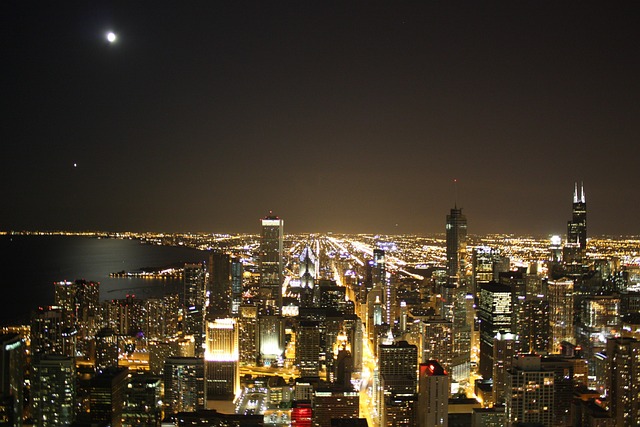
In the vibrant yet resilient city of Chicago, distressed property sales, particularly those involving fire-damaged homes, have seen a surge in interest from both local and out-of-state investors. Case studies highlight successful sales of fire-damaged properties within the city limits, offering valuable insights for prospective buyers and sellers alike. These transactions demonstrate that, with strategic rehabilitation and targeted marketing, fire-damaged homes can not only be sold but also become vibrant additions to Chicago’s real estate landscape.
Investor X, a seasoned professional, acquired a three-bedroom house in the North Side that had been severely damaged by a fire several years prior. Through meticulous restoration efforts focusing on structural integrity and modern aesthetics, he transformed the property into a sought-after residence. Utilizing digital marketing strategies and targeting a niche audience of buyers looking for unique opportunities, Investor X secured a sale at a premium price, showcasing the potential for significant returns in the Chicago real estate market when distressed properties are handled with care and expertise.
In conclusion, understanding distressed property sales, particularly fire-damaged homes in Chicago, involves navigating a complex landscape that includes market insights, legal considerations, and innovative marketing strategies. The Illinois market presents unique opportunities for investors eager to capitalize on these sales while also offering a chance to revitalize and rejuvenate communities affected by fire damage. By adopting effective strategies outlined in this article, including successful case studies, real estate professionals can contribute to the local economy and help Chicago residents rebuild after disasters, making it an attractive prospect to sell fire-damaged houses in the city.
